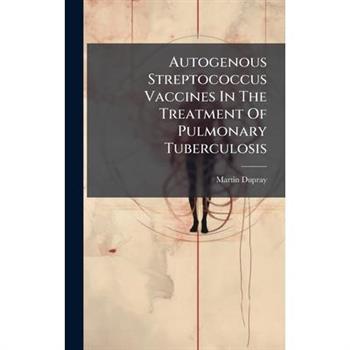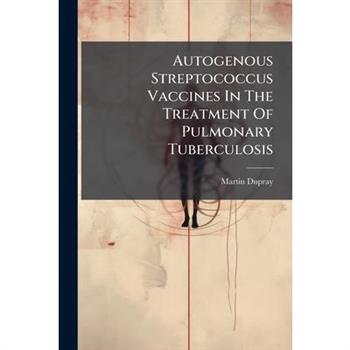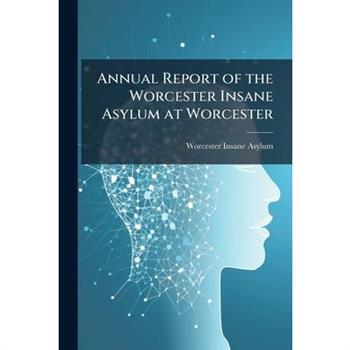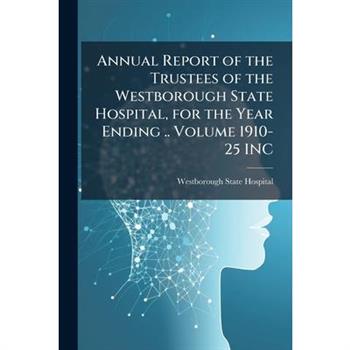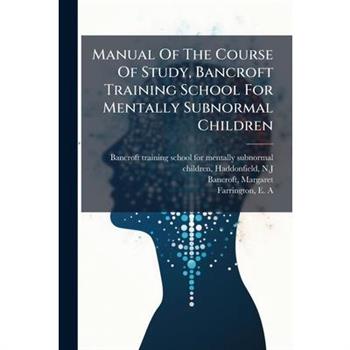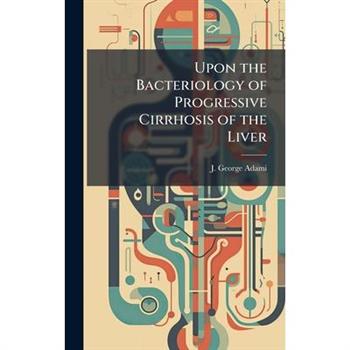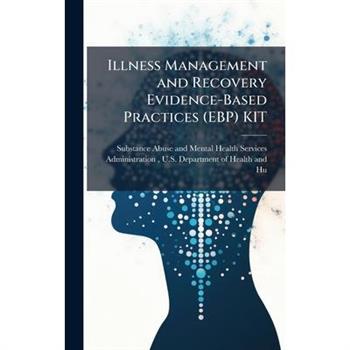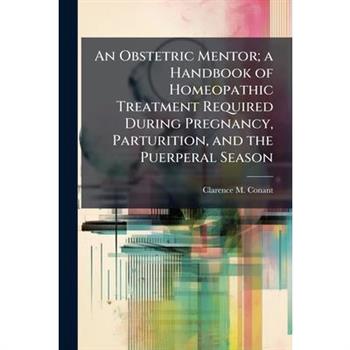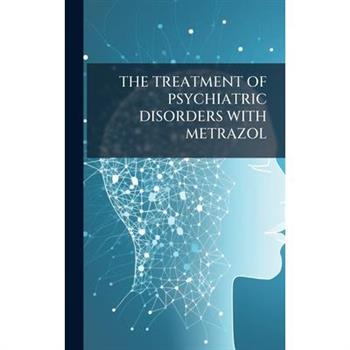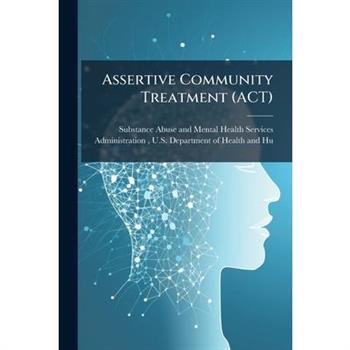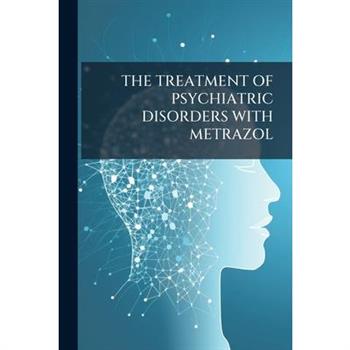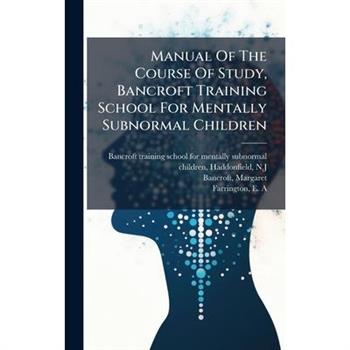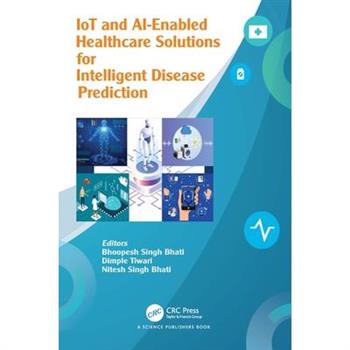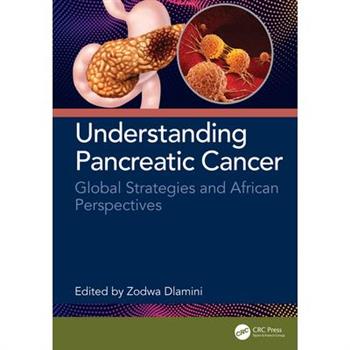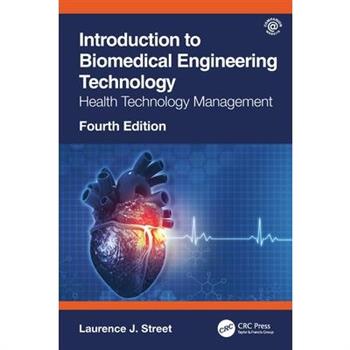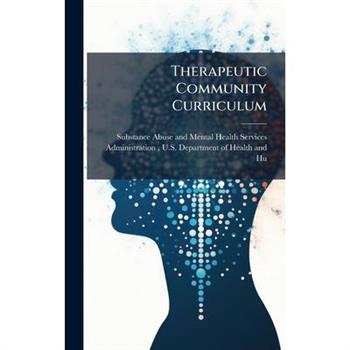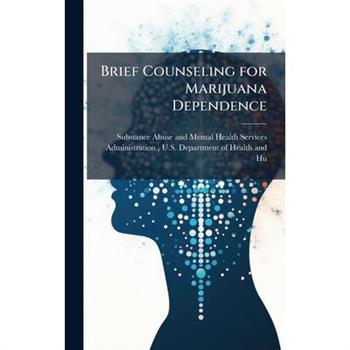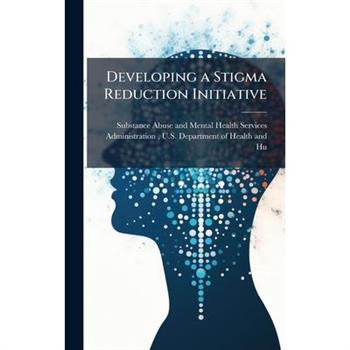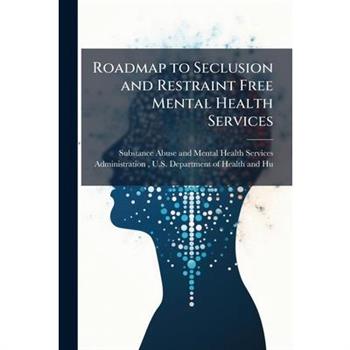National Association For The Protection Of The Insane, 1880-1882
This second volume from the National Association For The Protection Of The Insane offers a crucial window into the evolving landscape of mental health care in the United States during the late 19th century. Providing insights into the association's activities between 1880 and 1882, this volume documents the organization's efforts to advocate for humane treatment and improved facilities for those suffering from mental illness. Readers will find detailed accounts of meetings, discussions, and initiatives aimed at reforming the asylum system, combating abuse, and promoting a more compassionate understanding of mental health conditions. This historical document is invaluable for researchers, historians, and anyone interested in the history of mental health, social reform movements, and the development of psychiatric care in America. It provides a vital context for understanding contemporary approaches to mental health and the ongoing quest for equitable and effective care.This work has been selected by scholars as being culturally important, and is part of the knowledge base of civilization as we know it. This work was reproduced from the original artifact, and remains as true to the original work as possible. Therefore, you will see the original copyright references, library stamps (as most of these works have been housed in our most important libraries around the world), and other notations in the work.This work is in the public domain in the United States of America, and possibly other nations. Within the United States, you may freely copy and distribute this work, as no entity (individual or corporate) has a copyright on the body of the work.As a reproduction of a historical artifact, this work may contain missing or blurred pages, poor pictures, errant marks, etc. Scholars believe, and we concur, that this work is important enough to be preserved, reproduced, and made generally available to the public. We appreciate your support of the preservation process, and thank you for being an important part of keeping this knowledge alive and relevant.
On The Functions Of The Cerebrum
Explore the intricacies of the human brain with "On The Functions Of The Cerebrum: The Frontal Lobes, Volume 1, Issues 2-10" by Shepherd Ivory Franz. This detailed work delves into the functions of the cerebrum, with a specific focus on the frontal lobes. Franz provides insights into neurological functions, making this volume an invaluable resource for medical professionals, neuroscience researchers, and anyone interested in understanding the complexities of the brain. Gain a deeper understanding of how the frontal lobes contribute to overall brain function and neurological processes. This work remains a significant contribution to the field of neuroscience.This work has been selected by scholars as being culturally important, and is part of the knowledge base of civilization as we know it. This work was reproduced from the original artifact, and remains as true to the original work as possible. Therefore, you will see the original copyright references, library stamps (as most of these works have been housed in our most important libraries around the world), and other notations in the work.This work is in the public domain in the United States of America, and possibly other nations. Within the United States, you may freely copy and distribute this work, as no entity (individual or corporate) has a copyright on the body of the work.As a reproduction of a historical artifact, this work may contain missing or blurred pages, poor pictures, errant marks, etc. Scholars believe, and we concur, that this work is important enough to be preserved, reproduced, and made generally available to the public. We appreciate your support of the preservation process, and thank you for being an important part of keeping this knowledge alive and relevant.
The Prevention and Treatment of Abortion
"The Prevention and Treatment of Abortion" (1909) by Frederick Joseph Taussig offers a comprehensive exploration of abortion from a medical perspective at the turn of the 20th century. This historical work delves into the causes, prevention, and various treatments associated with abortion, reflecting the medical understanding and practices of the time. Taussig's detailed examination provides insights into the challenges faced by women and the medical community in addressing issues related to reproductive health. This book serves as a valuable resource for understanding the evolution of medical knowledge and the historical context surrounding abortion. It sheds light on the social and medical attitudes prevalent during this period, making it an important contribution to the history of medicine and women's studies. "The Prevention and Treatment of Abortion" offers a unique glimpse into a controversial and sensitive topic, inviting readers to reflect on the progress and changes in medical practice over the past century.This work has been selected by scholars as being culturally important, and is part of the knowledge base of civilization as we know it. This work was reproduced from the original artifact, and remains as true to the original work as possible. Therefore, you will see the original copyright references, library stamps (as most of these works have been housed in our most important libraries around the world), and other notations in the work.This work is in the public domain in the United States of America, and possibly other nations. Within the United States, you may freely copy and distribute this work, as no entity (individual or corporate) has a copyright on the body of the work.As a reproduction of a historical artifact, this work may contain missing or blurred pages, poor pictures, errant marks, etc. Scholars believe, and we concur, that this work is important enough to be preserved, reproduced, and made generally available to the public. We appreciate your support of the preservation process, and thank you for being an important part of keeping this knowledge alive and relevant.
The Internal Secretions of the Ovary
"The Internal Secretions of the Ovary" (1928) by Sir Alan Sterling Parkes, offers a detailed exploration of ovarian endocrinology during a period of significant advancement in the understanding of hormones and reproductive biology. This work provides insights into the early research on ovarian function and the role of internal secretions. It is a valuable resource for those interested in the history of endocrinology, women's health, and the development of reproductive science. The book presents detailed observations and analysis, reflecting the scientific methodologies of the early 20th century.This work has been selected by scholars as being culturally important, and is part of the knowledge base of civilization as we know it. This work was reproduced from the original artifact, and remains as true to the original work as possible. Therefore, you will see the original copyright references, library stamps (as most of these works have been housed in our most important libraries around the world), and other notations in the work.This work is in the public domain in the United States of America, and possibly other nations. Within the United States, you may freely copy and distribute this work, as no entity (individual or corporate) has a copyright on the body of the work.As a reproduction of a historical artifact, this work may contain missing or blurred pages, poor pictures, errant marks, etc. Scholars believe, and we concur, that this work is important enough to be preserved, reproduced, and made generally available to the public. We appreciate your support of the preservation process, and thank you for being an important part of keeping this knowledge alive and relevant.
History Of A Successful Case Of Amputation At The Hip-joint
"History Of A Successful Case Of Amputation At The Hip-joint" details a remarkable surgical achievement by Joseph Sampson Gamgee. This historical record meticulously documents a successful amputation where the limb was notably large, measuring 48 inches in circumference and weighing 99 pounds. Gamgee's account provides invaluable insights into 19th-century surgical techniques, patient care, and the challenges faced by surgeons during that era.This case study is a testament to the advancements and limitations of medical science at the time. It is a valuable resource for historians of medicine, surgeons, and anyone interested in the evolution of surgical practices. The detailed observations and analysis offer a unique perspective on the complexities of performing such a major operation and managing post-operative recovery.This work has been selected by scholars as being culturally important, and is part of the knowledge base of civilization as we know it. This work was reproduced from the original artifact, and remains as true to the original work as possible. Therefore, you will see the original copyright references, library stamps (as most of these works have been housed in our most important libraries around the world), and other notations in the work.This work is in the public domain in the United States of America, and possibly other nations. Within the United States, you may freely copy and distribute this work, as no entity (individual or corporate) has a copyright on the body of the work.As a reproduction of a historical artifact, this work may contain missing or blurred pages, poor pictures, errant marks, etc. Scholars believe, and we concur, that this work is important enough to be preserved, reproduced, and made generally available to the public. We appreciate your support of the preservation process, and thank you for being an important part of keeping this knowledge alive and relevant.
Autogenous Streptococcus Vaccines In The Treatment Of Pulmonary Tuberculosis
"Autogenous Streptococcus Vaccines In The Treatment Of Pulmonary Tuberculosis" explores an early 20th-century approach to combating tuberculosis through the use of autogenous streptococcus vaccines. This historical work by Martin Dupray delves into the preparation, administration, and observed effects of these vaccines on patients suffering from pulmonary tuberculosis.The book provides insights into the medical practices and theories of the time, offering a detailed account of a specific therapeutic intervention and its rationale. It is a valuable resource for those interested in the history of medicine, the evolution of vaccine development, and the treatment of infectious diseases prior to the advent of modern antibiotics. The text reflects the challenges and innovations in addressing a major public health crisis of the era.This work has been selected by scholars as being culturally important, and is part of the knowledge base of civilization as we know it. This work was reproduced from the original artifact, and remains as true to the original work as possible. Therefore, you will see the original copyright references, library stamps (as most of these works have been housed in our most important libraries around the world), and other notations in the work.This work is in the public domain in the United States of America, and possibly other nations. Within the United States, you may freely copy and distribute this work, as no entity (individual or corporate) has a copyright on the body of the work.As a reproduction of a historical artifact, this work may contain missing or blurred pages, poor pictures, errant marks, etc. Scholars believe, and we concur, that this work is important enough to be preserved, reproduced, and made generally available to the public. We appreciate your support of the preservation process, and thank you for being an important part of keeping this knowledge alive and relevant.
Atlas Zur Chirurgischen Anatomie Und Operationslehre
Explore the intricate details of surgical anatomy and operative techniques with "Atlas Zur Chirurgischen Anatomie Und Operationslehre," Volume 4, by G. J. Agatz. This meticulously crafted atlas features 136 steel-engraved plates and 52 lithographic outline plates, skillfully drawn by Jor. Greb. A valuable resource for medical professionals and students alike, this historical work provides a comprehensive visual guide to surgical procedures and anatomical structures.Delve into the past with this beautifully illustrated volume, offering a unique perspective on the evolution of surgical practices. The detailed engravings provide a clear understanding of anatomical relationships, making it an essential addition to any medical library. Discover the timeless knowledge and artistic precision within "Atlas Zur Chirurgischen Anatomie Und Operationslehre."This work has been selected by scholars as being culturally important, and is part of the knowledge base of civilization as we know it. This work was reproduced from the original artifact, and remains as true to the original work as possible. Therefore, you will see the original copyright references, library stamps (as most of these works have been housed in our most important libraries around the world), and other notations in the work.This work is in the public domain in the United States of America, and possibly other nations. Within the United States, you may freely copy and distribute this work, as no entity (individual or corporate) has a copyright on the body of the work.As a reproduction of a historical artifact, this work may contain missing or blurred pages, poor pictures, errant marks, etc. Scholars believe, and we concur, that this work is important enough to be preserved, reproduced, and made generally available to the public. We appreciate your support of the preservation process, and thank you for being an important part of keeping this knowledge alive and relevant.
On Mycetoma
"On Mycetoma" is a detailed medical treatise by Henry Vandyke Carter focusing on mycetoma, also known as Madura foot. This work meticulously describes the clinical presentation, pathology, and potential treatments for this chronic granulomatous disease, commonly found in tropical regions. Carter's careful observations and detailed illustrations provide invaluable insights into the various forms of the disease, caused by both fungal and bacterial infections. This historic text remains relevant for researchers, medical professionals, and students interested in infectious diseases, dermatology, and tropical medicine. The book serves as a crucial reference point for understanding the historical context and early research into a disease that continues to affect populations worldwide. A significant contribution to the field, "On Mycetoma" offers a comprehensive look at the complexities of diagnosing and managing this challenging condition.This work has been selected by scholars as being culturally important, and is part of the knowledge base of civilization as we know it. This work was reproduced from the original artifact, and remains as true to the original work as possible. Therefore, you will see the original copyright references, library stamps (as most of these works have been housed in our most important libraries around the world), and other notations in the work.This work is in the public domain in the United States of America, and possibly other nations. Within the United States, you may freely copy and distribute this work, as no entity (individual or corporate) has a copyright on the body of the work.As a reproduction of a historical artifact, this work may contain missing or blurred pages, poor pictures, errant marks, etc. Scholars believe, and we concur, that this work is important enough to be preserved, reproduced, and made generally available to the public. We appreciate your support of the preservation process, and thank you for being an important part of keeping this knowledge alive and relevant.
A Manual of Diseases of the Naso-Pharynx
"A Manual of Diseases of the Naso-Pharynx," with the subtitle "With Especial Reference to the Part Played by Them in Diseases of the Ear, and the Treatment of These Conditions," by Adair Dighton, offers a detailed examination of naso-pharyngeal diseases and their impact on auditory health. Published in 1912, this manual provides insights into early 20th-century medical understanding and treatment approaches. This work is valuable for those interested in the history of medicine, particularly the evolution of otolaryngology. It details the diagnostic methods and therapeutic interventions employed during that era, shedding light on the challenges and innovations in addressing diseases of the naso-pharynx and their related complications. The manual's historical perspective makes it a significant resource for researchers, medical historians, and anyone seeking a deeper understanding of medical practices of the past.This work has been selected by scholars as being culturally important, and is part of the knowledge base of civilization as we know it. This work was reproduced from the original artifact, and remains as true to the original work as possible. Therefore, you will see the original copyright references, library stamps (as most of these works have been housed in our most important libraries around the world), and other notations in the work.This work is in the public domain in the United States of America, and possibly other nations. Within the United States, you may freely copy and distribute this work, as no entity (individual or corporate) has a copyright on the body of the work.As a reproduction of a historical artifact, this work may contain missing or blurred pages, poor pictures, errant marks, etc. Scholars believe, and we concur, that this work is important enough to be preserved, reproduced, and made generally available to the public. We appreciate your support of the preservation process, and thank you for being an important part of keeping this knowledge alive and relevant.
Autogenous Streptococcus Vaccines In The Treatment Of Pulmonary Tuberculosis
"Autogenous Streptococcus Vaccines In The Treatment Of Pulmonary Tuberculosis" explores an early 20th-century approach to combating tuberculosis through the use of autogenous streptococcus vaccines. This historical work by Martin Dupray delves into the preparation, administration, and observed effects of these vaccines on patients suffering from pulmonary tuberculosis.The book provides insights into the medical practices and theories of the time, offering a detailed account of a specific therapeutic intervention and its rationale. It is a valuable resource for those interested in the history of medicine, the evolution of vaccine development, and the treatment of infectious diseases prior to the advent of modern antibiotics. The text reflects the challenges and innovations in addressing a major public health crisis of the era.This work has been selected by scholars as being culturally important, and is part of the knowledge base of civilization as we know it. This work was reproduced from the original artifact, and remains as true to the original work as possible. Therefore, you will see the original copyright references, library stamps (as most of these works have been housed in our most important libraries around the world), and other notations in the work.This work is in the public domain in the United States of America, and possibly other nations. Within the United States, you may freely copy and distribute this work, as no entity (individual or corporate) has a copyright on the body of the work.As a reproduction of a historical artifact, this work may contain missing or blurred pages, poor pictures, errant marks, etc. Scholars believe, and we concur, that this work is important enough to be preserved, reproduced, and made generally available to the public. We appreciate your support of the preservation process, and thank you for being an important part of keeping this knowledge alive and relevant.
Extra-Uterine Pregnancy; a Discussion
"Extra-Uterine Pregnancy; a Discussion" offers a detailed examination of ectopic pregnancy, reflecting the medical knowledge and surgical practices of the late 19th century. Written by Franklin Townsend, this work provides insights into the diagnosis and treatment approaches prevalent during a time when medical understanding and interventions were significantly different from modern standards. This historical text serves as a valuable resource for those interested in the evolution of medical science, particularly in the fields of gynecology and obstetrics. It sheds light on the challenges faced by physicians and the innovative methods they employed to address this life-threatening condition. A compelling look at the history of medicine, this book is essential for medical historians and anyone curious about the development of surgical techniques and diagnostic practices.This work has been selected by scholars as being culturally important, and is part of the knowledge base of civilization as we know it. This work was reproduced from the original artifact, and remains as true to the original work as possible. Therefore, you will see the original copyright references, library stamps (as most of these works have been housed in our most important libraries around the world), and other notations in the work.This work is in the public domain in the United States of America, and possibly other nations. Within the United States, you may freely copy and distribute this work, as no entity (individual or corporate) has a copyright on the body of the work.As a reproduction of a historical artifact, this work may contain missing or blurred pages, poor pictures, errant marks, etc. Scholars believe, and we concur, that this work is important enough to be preserved, reproduced, and made generally available to the public. We appreciate your support of the preservation process, and thank you for being an important part of keeping this knowledge alive and relevant.
Annual Report of the Worcester Insane Asylum at Worcester
This is an annual report from the Worcester Insane Asylum in Worcester, Massachusetts, dating back to 1891. It offers a detailed look into the operations, patient demographics, and treatment methods employed at the asylum during that period. Such reports provide valuable primary source material for understanding the history of mental health care in the United States, the evolution of psychiatric practices, and the social context surrounding mental illness in the late 19th century. Researchers and historians interested in the history of medicine, social welfare, and institutional care will find this report a compelling resource for gaining insight into the daily life and administrative functions of a major mental institution.This work has been selected by scholars as being culturally important, and is part of the knowledge base of civilization as we know it. This work was reproduced from the original artifact, and remains as true to the original work as possible. Therefore, you will see the original copyright references, library stamps (as most of these works have been housed in our most important libraries around the world), and other notations in the work.This work is in the public domain in the United States of America, and possibly other nations. Within the United States, you may freely copy and distribute this work, as no entity (individual or corporate) has a copyright on the body of the work.As a reproduction of a historical artifact, this work may contain missing or blurred pages, poor pictures, errant marks, etc. Scholars believe, and we concur, that this work is important enough to be preserved, reproduced, and made generally available to the public. We appreciate your support of the preservation process, and thank you for being an important part of keeping this knowledge alive and relevant.
The Dangerous age in men; a Treatise on the Prostate Gland
"The Dangerous Age in Men: A Treatise on the Prostate Gland," written by Chester Tilton Stone, offers a detailed exploration of the prostate gland and its implications for men's health. Published in 1941, this book provides insights into urological knowledge and medical practices of the time. While medical understanding has advanced considerably since its publication, this work remains a valuable historical document, reflecting past approaches to men's health issues and the understanding of the prostate gland. It offers a unique glimpse into the evolution of medical science and the specific challenges faced by men during this period.This work has been selected by scholars as being culturally important, and is part of the knowledge base of civilization as we know it. This work was reproduced from the original artifact, and remains as true to the original work as possible. Therefore, you will see the original copyright references, library stamps (as most of these works have been housed in our most important libraries around the world), and other notations in the work.This work is in the public domain in the United States of America, and possibly other nations. Within the United States, you may freely copy and distribute this work, as no entity (individual or corporate) has a copyright on the body of the work.As a reproduction of a historical artifact, this work may contain missing or blurred pages, poor pictures, errant marks, etc. Scholars believe, and we concur, that this work is important enough to be preserved, reproduced, and made generally available to the public. We appreciate your support of the preservation process, and thank you for being an important part of keeping this knowledge alive and relevant.
The Relation of Adaptation in Stuttering to Self-acceptance, Manifest Anxiety, and Level of Aspiration
An investigation into the relationship between adaptation in stuttering and psychological factors. This study explores the connections between the adaptation effect in stuttering-the phenomenon where stuttering decreases with repeated readings of the same material-and an individual's self-acceptance, manifest anxiety, and level of aspiration. Hutchison's research offers valuable insights into the psychological dimensions of stuttering, moving beyond purely physiological explanations to consider the role of self-perception and emotional state in speech fluency. This work is significant for speech pathologists, psychologists, and anyone interested in understanding the complex interplay between mind and body in communication disorders.This work has been selected by scholars as being culturally important, and is part of the knowledge base of civilization as we know it. This work was reproduced from the original artifact, and remains as true to the original work as possible. Therefore, you will see the original copyright references, library stamps (as most of these works have been housed in our most important libraries around the world), and other notations in the work.This work is in the public domain in the United States of America, and possibly other nations. Within the United States, you may freely copy and distribute this work, as no entity (individual or corporate) has a copyright on the body of the work.As a reproduction of a historical artifact, this work may contain missing or blurred pages, poor pictures, errant marks, etc. Scholars believe, and we concur, that this work is important enough to be preserved, reproduced, and made generally available to the public. We appreciate your support of the preservation process, and thank you for being an important part of keeping this knowledge alive and relevant.
The Internal Secretions of the Ovary
"The Internal Secretions of the Ovary" (1928) by Sir Alan Sterling Parkes, offers a detailed exploration of ovarian endocrinology during a period of significant advancement in the understanding of hormones and reproductive biology. This work provides insights into the early research on ovarian function and the role of internal secretions. It is a valuable resource for those interested in the history of endocrinology, women's health, and the development of reproductive science. The book presents detailed observations and analysis, reflecting the scientific methodologies of the early 20th century.This work has been selected by scholars as being culturally important, and is part of the knowledge base of civilization as we know it. This work was reproduced from the original artifact, and remains as true to the original work as possible. Therefore, you will see the original copyright references, library stamps (as most of these works have been housed in our most important libraries around the world), and other notations in the work.This work is in the public domain in the United States of America, and possibly other nations. Within the United States, you may freely copy and distribute this work, as no entity (individual or corporate) has a copyright on the body of the work.As a reproduction of a historical artifact, this work may contain missing or blurred pages, poor pictures, errant marks, etc. Scholars believe, and we concur, that this work is important enough to be preserved, reproduced, and made generally available to the public. We appreciate your support of the preservation process, and thank you for being an important part of keeping this knowledge alive and relevant.
Atlas Zur Chirurgischen Anatomie Und Operationslehre
Explore the intricate details of surgical anatomy and operative techniques with "Atlas Zur Chirurgischen Anatomie Und Operationslehre," Volume 4, by G. J. Agatz. This meticulously crafted atlas features 136 steel-engraved plates and 52 lithographic outline plates, skillfully drawn by Jor. Greb. A valuable resource for medical professionals and students alike, this historical work provides a comprehensive visual guide to surgical procedures and anatomical structures.Delve into the past with this beautifully illustrated volume, offering a unique perspective on the evolution of surgical practices. The detailed engravings provide a clear understanding of anatomical relationships, making it an essential addition to any medical library. Discover the timeless knowledge and artistic precision within "Atlas Zur Chirurgischen Anatomie Und Operationslehre."This work has been selected by scholars as being culturally important, and is part of the knowledge base of civilization as we know it. This work was reproduced from the original artifact, and remains as true to the original work as possible. Therefore, you will see the original copyright references, library stamps (as most of these works have been housed in our most important libraries around the world), and other notations in the work.This work is in the public domain in the United States of America, and possibly other nations. Within the United States, you may freely copy and distribute this work, as no entity (individual or corporate) has a copyright on the body of the work.As a reproduction of a historical artifact, this work may contain missing or blurred pages, poor pictures, errant marks, etc. Scholars believe, and we concur, that this work is important enough to be preserved, reproduced, and made generally available to the public. We appreciate your support of the preservation process, and thank you for being an important part of keeping this knowledge alive and relevant.
On Mycetoma
"On Mycetoma" is a detailed medical treatise by Henry Vandyke Carter focusing on mycetoma, also known as Madura foot. This work meticulously describes the clinical presentation, pathology, and potential treatments for this chronic granulomatous disease, commonly found in tropical regions. Carter's careful observations and detailed illustrations provide invaluable insights into the various forms of the disease, caused by both fungal and bacterial infections. This historic text remains relevant for researchers, medical professionals, and students interested in infectious diseases, dermatology, and tropical medicine. The book serves as a crucial reference point for understanding the historical context and early research into a disease that continues to affect populations worldwide. A significant contribution to the field, "On Mycetoma" offers a comprehensive look at the complexities of diagnosing and managing this challenging condition.This work has been selected by scholars as being culturally important, and is part of the knowledge base of civilization as we know it. This work was reproduced from the original artifact, and remains as true to the original work as possible. Therefore, you will see the original copyright references, library stamps (as most of these works have been housed in our most important libraries around the world), and other notations in the work.This work is in the public domain in the United States of America, and possibly other nations. Within the United States, you may freely copy and distribute this work, as no entity (individual or corporate) has a copyright on the body of the work.As a reproduction of a historical artifact, this work may contain missing or blurred pages, poor pictures, errant marks, etc. Scholars believe, and we concur, that this work is important enough to be preserved, reproduced, and made generally available to the public. We appreciate your support of the preservation process, and thank you for being an important part of keeping this knowledge alive and relevant.
A Plea for the Insane in the Prisons and Poor-Houses
"A Plea for the Insane in the Prisons and Poor-Houses" offers a stark examination of the conditions faced by the mentally ill within 19th-century carceral and welfare systems. This historical document sheds light on the often inhumane treatment and lack of proper care afforded to those suffering from mental illness. The authors, A. C. Bryson and Co, passionately advocate for reform, urging society to recognize the unique needs of the insane and to provide appropriate facilities and treatment.The book serves as a critical commentary on the social attitudes and institutional practices of the era. It highlights the urgent need for a more compassionate and effective approach to mental health care, making it a valuable resource for understanding the history of mental health treatment and the ongoing struggle for social justice and human rights.This work has been selected by scholars as being culturally important, and is part of the knowledge base of civilization as we know it. This work was reproduced from the original artifact, and remains as true to the original work as possible. Therefore, you will see the original copyright references, library stamps (as most of these works have been housed in our most important libraries around the world), and other notations in the work.This work is in the public domain in the United States of America, and possibly other nations. Within the United States, you may freely copy and distribute this work, as no entity (individual or corporate) has a copyright on the body of the work.As a reproduction of a historical artifact, this work may contain missing or blurred pages, poor pictures, errant marks, etc. Scholars believe, and we concur, that this work is important enough to be preserved, reproduced, and made generally available to the public. We appreciate your support of the preservation process, and thank you for being an important part of keeping this knowledge alive and relevant.
Annual Report of the Trustees of the Westborough State Hospital, for the Year Ending .. Volume 1910-25 INC
This volume contains the Annual Report of the Trustees of the Westborough State Hospital for the year ending in 1910. As a historical document, this report offers valuable insights into the operations, patient care practices, and administrative concerns of a late 19th and early 20th-century psychiatric institution. It provides a snapshot of the approaches to mental health treatment and institutional management during a period of significant evolution in psychiatric medicine. Researchers and historians interested in the history of mental health care, public health administration, and the social history of Massachusetts will find this report a useful primary source. The detailed accounts of the hospital's activities offer a glimpse into the daily lives of both patients and staff within a state-supported mental health facility.This work has been selected by scholars as being culturally important, and is part of the knowledge base of civilization as we know it. This work was reproduced from the original artifact, and remains as true to the original work as possible. Therefore, you will see the original copyright references, library stamps (as most of these works have been housed in our most important libraries around the world), and other notations in the work.This work is in the public domain in the United States of America, and possibly other nations. Within the United States, you may freely copy and distribute this work, as no entity (individual or corporate) has a copyright on the body of the work.As a reproduction of a historical artifact, this work may contain missing or blurred pages, poor pictures, errant marks, etc. Scholars believe, and we concur, that this work is important enough to be preserved, reproduced, and made generally available to the public. We appreciate your support of the preservation process, and thank you for being an important part of keeping this knowledge alive and relevant.
Subglottal Pressure Measures During Vocal fry Phonation
This work presents research on subglottal pressure during vocal fry phonation. Likely delving into the mechanics of voice production, the study by Thomas Murry (1943-) probably investigates the relationship between air pressure beneath the vocal folds and the acoustic characteristics of vocal fry. This research would be valuable for phoneticians, speech-language pathologists, and voice scientists interested in understanding the physiological aspects of this particular vocal register. It provides insights into the biomechanics of voice and could potentially have applications in the diagnosis and treatment of voice disorders.This work has been selected by scholars as being culturally important, and is part of the knowledge base of civilization as we know it. This work was reproduced from the original artifact, and remains as true to the original work as possible. Therefore, you will see the original copyright references, library stamps (as most of these works have been housed in our most important libraries around the world), and other notations in the work.This work is in the public domain in the United States of America, and possibly other nations. Within the United States, you may freely copy and distribute this work, as no entity (individual or corporate) has a copyright on the body of the work.As a reproduction of a historical artifact, this work may contain missing or blurred pages, poor pictures, errant marks, etc. Scholars believe, and we concur, that this work is important enough to be preserved, reproduced, and made generally available to the public. We appreciate your support of the preservation process, and thank you for being an important part of keeping this knowledge alive and relevant.
Manual Of The Course Of Study, Bancroft Training School For Mentally Subnormal Children
"Manual Of The Course Of Study, Bancroft Training School For Mentally Subnormal Children" offers a glimpse into the educational approaches used in the early 20th century for children with intellectual disabilities. Published in 1909, this manual outlines the curriculum and methodologies employed at the Bancroft Training School, an institution dedicated to the care and education of mentally subnormal children. Authored by the Bancroft Training School, Margaret Bancroft, and E.A. Farrington, this historical document provides valuable insights into the evolving field of special education. It reflects the prevailing attitudes and understanding of intellectual disability at the time, while also showcasing the school's commitment to providing structured learning and development opportunities for its students. A valuable resource for historians of education, psychology, and disability studies, this manual sheds light on early interventions and pedagogical practices in a specialized educational setting.This work has been selected by scholars as being culturally important, and is part of the knowledge base of civilization as we know it. This work was reproduced from the original artifact, and remains as true to the original work as possible. Therefore, you will see the original copyright references, library stamps (as most of these works have been housed in our most important libraries around the world), and other notations in the work.This work is in the public domain in the United States of America, and possibly other nations. Within the United States, you may freely copy and distribute this work, as no entity (individual or corporate) has a copyright on the body of the work.As a reproduction of a historical artifact, this work may contain missing or blurred pages, poor pictures, errant marks, etc. Scholars believe, and we concur, that this work is important enough to be preserved, reproduced, and made generally available to the public. We appreciate your support of the preservation process, and thank you for being an important part of keeping this knowledge alive and relevant.
A Plea for the Insane in the Prisons and Poor-Houses
"A Plea for the Insane in the Prisons and Poor-Houses" offers a stark examination of the conditions faced by the mentally ill within 19th-century carceral and welfare systems. This historical document sheds light on the often inhumane treatment and lack of proper care afforded to those suffering from mental illness. The authors, A. C. Bryson and Co, passionately advocate for reform, urging society to recognize the unique needs of the insane and to provide appropriate facilities and treatment.The book serves as a critical commentary on the social attitudes and institutional practices of the era. It highlights the urgent need for a more compassionate and effective approach to mental health care, making it a valuable resource for understanding the history of mental health treatment and the ongoing struggle for social justice and human rights.This work has been selected by scholars as being culturally important, and is part of the knowledge base of civilization as we know it. This work was reproduced from the original artifact, and remains as true to the original work as possible. Therefore, you will see the original copyright references, library stamps (as most of these works have been housed in our most important libraries around the world), and other notations in the work.This work is in the public domain in the United States of America, and possibly other nations. Within the United States, you may freely copy and distribute this work, as no entity (individual or corporate) has a copyright on the body of the work.As a reproduction of a historical artifact, this work may contain missing or blurred pages, poor pictures, errant marks, etc. Scholars believe, and we concur, that this work is important enough to be preserved, reproduced, and made generally available to the public. We appreciate your support of the preservation process, and thank you for being an important part of keeping this knowledge alive and relevant.
Upon the Bacteriology of Progressive Cirrhosis of the Liver
"Upon the Bacteriology of Progressive Cirrhosis of the Liver" delves into early research concerning the role of bacteria in the progression of liver cirrhosis. Penned by J. George Adami, this work offers insights into the bacteriological investigations of the late 19th and early 20th centuries, providing a historical perspective on the understanding of liver diseases. This book is a valuable resource for those interested in the historical development of medical microbiology and the evolving understanding of cirrhosis.This work has been selected by scholars as being culturally important, and is part of the knowledge base of civilization as we know it. This work was reproduced from the original artifact, and remains as true to the original work as possible. Therefore, you will see the original copyright references, library stamps (as most of these works have been housed in our most important libraries around the world), and other notations in the work.This work is in the public domain in the United States of America, and possibly other nations. Within the United States, you may freely copy and distribute this work, as no entity (individual or corporate) has a copyright on the body of the work.As a reproduction of a historical artifact, this work may contain missing or blurred pages, poor pictures, errant marks, etc. Scholars believe, and we concur, that this work is important enough to be preserved, reproduced, and made generally available to the public. We appreciate your support of the preservation process, and thank you for being an important part of keeping this knowledge alive and relevant.
Photographic Atlas of the Diseases of the Skin a Series of Ninety-six Plates, Comprising Nearly two Hundred Illustrations, With Descriptive Text, and a Treatise on Cutaneous Therapeutics
"Photographic Atlas of the Diseases of the Skin" by George Henry Fox, presents a comprehensive series of ninety-six plates, comprising nearly two hundred illustrations, accompanied by descriptive text and a treatise on cutaneous therapeutics. This historical atlas, originally published in 1904, provides a visual and textual reference to various skin diseases as understood at the turn of the century. The detailed photographic plates offer a unique glimpse into the diagnostic and therapeutic practices of the time, making it an invaluable resource for medical historians, dermatologists, and anyone interested in the evolution of medical knowledge. Fox's work captures the state of dermatological understanding, showcasing both the advancements and limitations of medical science during this period. Explore the historical context of skin disease diagnosis and treatment through this meticulously curated collection of images and insights.This work has been selected by scholars as being culturally important, and is part of the knowledge base of civilization as we know it. This work was reproduced from the original artifact, and remains as true to the original work as possible. Therefore, you will see the original copyright references, library stamps (as most of these works have been housed in our most important libraries around the world), and other notations in the work.This work is in the public domain in the United States of America, and possibly other nations. Within the United States, you may freely copy and distribute this work, as no entity (individual or corporate) has a copyright on the body of the work.As a reproduction of a historical artifact, this work may contain missing or blurred pages, poor pictures, errant marks, etc. Scholars believe, and we concur, that this work is important enough to be preserved, reproduced, and made generally available to the public. We appreciate your support of the preservation process, and thank you for being an important part of keeping this knowledge alive and relevant.
The American Journal of Urology and Sexology
Delve into the historical depths of American medicine with Volume 16 of "The American Journal of Urology and Sexology." This meticulously preserved volume offers a unique glimpse into the medical landscape of the early 20th century, showcasing the prevailing research, clinical practices, and evolving understanding of urological and sexological health. A valuable resource for medical historians, researchers, and anyone interested in the development of medical science, this journal provides a fascinating insight into the challenges and triumphs of a bygone era. Explore the detailed studies, case reports, and scholarly articles that shaped the foundations of modern urology and sexology. This volume is a testament to the dedication and ingenuity of the medical professionals who paved the way for today's advancements.This work has been selected by scholars as being culturally important, and is part of the knowledge base of civilization as we know it. This work was reproduced from the original artifact, and remains as true to the original work as possible. Therefore, you will see the original copyright references, library stamps (as most of these works have been housed in our most important libraries around the world), and other notations in the work.This work is in the public domain in the United States of America, and possibly other nations. Within the United States, you may freely copy and distribute this work, as no entity (individual or corporate) has a copyright on the body of the work.As a reproduction of a historical artifact, this work may contain missing or blurred pages, poor pictures, errant marks, etc. Scholars believe, and we concur, that this work is important enough to be preserved, reproduced, and made generally available to the public. We appreciate your support of the preservation process, and thank you for being an important part of keeping this knowledge alive and relevant.
The Long Road Called Goodbye
Part clinical case study, part family journal, The Long Road Called Goodbye is a powerful and moving account of one family's thirteen-year struggle with Alzheimer's. This engaging informative book is a closely documented clinical study that reads like a novel, filled with all the feelings, crises, and conflicts experienced by patient and family. It is a story of love, loyalty, perseverance, strength, and dignity. The Long Road Called Goodbye makes a major contribution to the care of AD patients and their families. The book will be of interest to professionals who work with Alzheimer's patients, including physicians, staff at care-giving facilities, and state agencies, as well as to families who struggle with this disease.
The Long Road Called Goodbye
Part clinical case study, part family journal, The Long Road Called Goodbye is a powerful and moving account of one family's thirteen-year struggle with Alzheimer's. This engaging informative book is a closely documented clinical study that reads like a novel, filled with all the feelings, crises, and conflicts experienced by patient and family. It is a story of love, loyalty, perseverance, strength, and dignity. The Long Road Called Goodbye makes a major contribution to the care of AD patients and their families. The book will be of interest to professionals who work with Alzheimer's patients, including physicians, staff at care-giving facilities, and state agencies, as well as to families who struggle with this disease.
Illness Management and Recovery Evidence-Based Practices (EBP) KIT
Guides public officials in developing illness-management and recovery mental health programs that emphasize personal goal-setting and actionable strategies for recovery. Offers guidance grounded in evidence-based practices. Kit includes 10 booklets.This work has been selected by scholars as being culturally important, and is part of the knowledge base of civilization as we know it. This work was reproduced from the original artifact, and remains as true to the original work as possible. Therefore, you will see the original copyright references, library stamps (as most of these works have been housed in our most important libraries around the world), and other notations in the work.This work is in the public domain in the United States of America, and possibly other nations. Within the United States, you may freely copy and distribute this work, as no entity (individual or corporate) has a copyright on the body of the work.As a reproduction of a historical artifact, this work may contain missing or blurred pages, poor pictures, errant marks, etc. Scholars believe, and we concur, that this work is important enough to be preserved, reproduced, and made generally available to the public. We appreciate your support of the preservation process, and thank you for being an important part of keeping this knowledge alive and relevant.
An Obstetric Mentor; a Handbook of Homeopathic Treatment Required During Pregnancy, Parturition, and the Puerperal Season
"An Obstetric Mentor" by Clarence M. Conant, published in 1884, serves as a comprehensive guide to homeopathic treatment during pregnancy, parturition, and the puerperal season. This handbook provides detailed insights into the homeopathic remedies and practices considered essential for maternal care in the late 19th century. Designed for both practitioners and expectant mothers, the book offers a structured approach to managing various stages of pregnancy and childbirth using homeopathic principles. It includes specific treatments and advice tailored to address the unique challenges and conditions encountered during these critical periods. As a historical resource, "An Obstetric Mentor" provides a valuable window into the medical practices and beliefs of its time, reflecting the integration of homeopathy in obstetric care. Its enduring appeal lies in its detailed and practical approach, offering insights into a bygone era of medical treatment and maternal health.This work has been selected by scholars as being culturally important, and is part of the knowledge base of civilization as we know it. This work was reproduced from the original artifact, and remains as true to the original work as possible. Therefore, you will see the original copyright references, library stamps (as most of these works have been housed in our most important libraries around the world), and other notations in the work.This work is in the public domain in the United States of America, and possibly other nations. Within the United States, you may freely copy and distribute this work, as no entity (individual or corporate) has a copyright on the body of the work.As a reproduction of a historical artifact, this work may contain missing or blurred pages, poor pictures, errant marks, etc. Scholars believe, and we concur, that this work is important enough to be preserved, reproduced, and made generally available to the public. We appreciate your support of the preservation process, and thank you for being an important part of keeping this knowledge alive and relevant.
The Treatment of Psychiatric Disorders with Metrazol
"The Treatment of Psychiatric Disorders with Metrazol" (1961) offers a detailed look into the use of metrazol, also known as pentylenetetrazol, as a treatment for various psychiatric conditions. This historical text provides insights into the methods and theories prevalent in psychiatric care during the mid-20th century, specifically concerning convulsive therapy.This book serves as a valuable resource for historians of medicine, psychiatry professionals, and anyone interested in understanding the evolution of mental health treatments. It sheds light on a now largely obsolete but once widely practiced therapeutic approach, offering a glimpse into the challenges and innovations of psychiatric medicine in its time.This work has been selected by scholars as being culturally important, and is part of the knowledge base of civilization as we know it. This work was reproduced from the original artifact, and remains as true to the original work as possible. Therefore, you will see the original copyright references, library stamps (as most of these works have been housed in our most important libraries around the world), and other notations in the work.This work is in the public domain in the United States of America, and possibly other nations. Within the United States, you may freely copy and distribute this work, as no entity (individual or corporate) has a copyright on the body of the work.As a reproduction of a historical artifact, this work may contain missing or blurred pages, poor pictures, errant marks, etc. Scholars believe, and we concur, that this work is important enough to be preserved, reproduced, and made generally available to the public. We appreciate your support of the preservation process, and thank you for being an important part of keeping this knowledge alive and relevant.
Assertive Community Treatment (ACT)
Provides tools to implement the evidence-based practices of Assertive Community Treatment (ACT), which offers customized, community-based services for people with mental illness. Includes DVD, CD-ROM, brochures in English and Spanish, and PowerPoint presentation.This work has been selected by scholars as being culturally important, and is part of the knowledge base of civilization as we know it. This work was reproduced from the original artifact, and remains as true to the original work as possible. Therefore, you will see the original copyright references, library stamps (as most of these works have been housed in our most important libraries around the world), and other notations in the work.This work is in the public domain in the United States of America, and possibly other nations. Within the United States, you may freely copy and distribute this work, as no entity (individual or corporate) has a copyright on the body of the work.As a reproduction of a historical artifact, this work may contain missing or blurred pages, poor pictures, errant marks, etc. Scholars believe, and we concur, that this work is important enough to be preserved, reproduced, and made generally available to the public. We appreciate your support of the preservation process, and thank you for being an important part of keeping this knowledge alive and relevant.
Substance Abuse Treatment
Summarizes guidelines for clinicians leading group therapy sessions for substance abuse treatment. Describes the advantages and common types of group therapy, client placement criteria, and techniques for group development and group leadership.This work has been selected by scholars as being culturally important, and is part of the knowledge base of civilization as we know it. This work was reproduced from the original artifact, and remains as true to the original work as possible. Therefore, you will see the original copyright references, library stamps (as most of these works have been housed in our most important libraries around the world), and other notations in the work.This work is in the public domain in the United States of America, and possibly other nations. Within the United States, you may freely copy and distribute this work, as no entity (individual or corporate) has a copyright on the body of the work.As a reproduction of a historical artifact, this work may contain missing or blurred pages, poor pictures, errant marks, etc. Scholars believe, and we concur, that this work is important enough to be preserved, reproduced, and made generally available to the public. We appreciate your support of the preservation process, and thank you for being an important part of keeping this knowledge alive and relevant.
The Treatment of Psychiatric Disorders with Metrazol
"The Treatment of Psychiatric Disorders with Metrazol" (1961) offers a detailed look into the use of metrazol, also known as pentylenetetrazol, as a treatment for various psychiatric conditions. This historical text provides insights into the methods and theories prevalent in psychiatric care during the mid-20th century, specifically concerning convulsive therapy.This book serves as a valuable resource for historians of medicine, psychiatry professionals, and anyone interested in understanding the evolution of mental health treatments. It sheds light on a now largely obsolete but once widely practiced therapeutic approach, offering a glimpse into the challenges and innovations of psychiatric medicine in its time.This work has been selected by scholars as being culturally important, and is part of the knowledge base of civilization as we know it. This work was reproduced from the original artifact, and remains as true to the original work as possible. Therefore, you will see the original copyright references, library stamps (as most of these works have been housed in our most important libraries around the world), and other notations in the work.This work is in the public domain in the United States of America, and possibly other nations. Within the United States, you may freely copy and distribute this work, as no entity (individual or corporate) has a copyright on the body of the work.As a reproduction of a historical artifact, this work may contain missing or blurred pages, poor pictures, errant marks, etc. Scholars believe, and we concur, that this work is important enough to be preserved, reproduced, and made generally available to the public. We appreciate your support of the preservation process, and thank you for being an important part of keeping this knowledge alive and relevant.
Manual Of The Course Of Study, Bancroft Training School For Mentally Subnormal Children
"Manual Of The Course Of Study, Bancroft Training School For Mentally Subnormal Children" offers a glimpse into the educational approaches used in the early 20th century for children with intellectual disabilities. Published in 1909, this manual outlines the curriculum and methodologies employed at the Bancroft Training School, an institution dedicated to the care and education of mentally subnormal children. Authored by the Bancroft Training School, Margaret Bancroft, and E.A. Farrington, this historical document provides valuable insights into the evolving field of special education. It reflects the prevailing attitudes and understanding of intellectual disability at the time, while also showcasing the school's commitment to providing structured learning and development opportunities for its students. A valuable resource for historians of education, psychology, and disability studies, this manual sheds light on early interventions and pedagogical practices in a specialized educational setting.This work has been selected by scholars as being culturally important, and is part of the knowledge base of civilization as we know it. This work was reproduced from the original artifact, and remains as true to the original work as possible. Therefore, you will see the original copyright references, library stamps (as most of these works have been housed in our most important libraries around the world), and other notations in the work.This work is in the public domain in the United States of America, and possibly other nations. Within the United States, you may freely copy and distribute this work, as no entity (individual or corporate) has a copyright on the body of the work.As a reproduction of a historical artifact, this work may contain missing or blurred pages, poor pictures, errant marks, etc. Scholars believe, and we concur, that this work is important enough to be preserved, reproduced, and made generally available to the public. We appreciate your support of the preservation process, and thank you for being an important part of keeping this knowledge alive and relevant.
Alienist and Neurologist
Alienist and Neurologist, 21 pt 2 offers a fascinating glimpse into the historical intersection of neurology, psychology, and the treatment of mental health. This volume provides insights into the practices and perspectives of alienists (early psychiatrists) and neurologists, shedding light on the evolution of these fields. Readers interested in the history of medicine, the development of psychological theories, and the treatment of mental illness will find this work to be a valuable resource.This work has been selected by scholars as being culturally important, and is part of the knowledge base of civilization as we know it. This work was reproduced from the original artifact, and remains as true to the original work as possible. Therefore, you will see the original copyright references, library stamps (as most of these works have been housed in our most important libraries around the world), and other notations in the work.This work is in the public domain in the United States of America, and possibly other nations. Within the United States, you may freely copy and distribute this work, as no entity (individual or corporate) has a copyright on the body of the work.As a reproduction of a historical artifact, this work may contain missing or blurred pages, poor pictures, errant marks, etc. Scholars believe, and we concur, that this work is important enough to be preserved, reproduced, and made generally available to the public. We appreciate your support of the preservation process, and thank you for being an important part of keeping this knowledge alive and relevant.
The British Journal of Surgery
"The British Journal of Surgery, 9" presents a compilation of cutting-edge research and clinical insights in the field of surgery. This volume offers a comprehensive overview of the latest advancements, techniques, and case studies relevant to surgical practice. With contributions from leading surgeons and researchers, this journal serves as an essential resource for medical professionals seeking to stay informed about current developments and best practices in surgical care. It provides valuable information for practitioners aiming to enhance their skills and improve patient outcomes. The journal fosters the dissemination of knowledge and promotes excellence in surgical medicine.This work has been selected by scholars as being culturally important, and is part of the knowledge base of civilization as we know it. This work was reproduced from the original artifact, and remains as true to the original work as possible. Therefore, you will see the original copyright references, library stamps (as most of these works have been housed in our most important libraries around the world), and other notations in the work.This work is in the public domain in the United States of America, and possibly other nations. Within the United States, you may freely copy and distribute this work, as no entity (individual or corporate) has a copyright on the body of the work.As a reproduction of a historical artifact, this work may contain missing or blurred pages, poor pictures, errant marks, etc. Scholars believe, and we concur, that this work is important enough to be preserved, reproduced, and made generally available to the public. We appreciate your support of the preservation process, and thank you for being an important part of keeping this knowledge alive and relevant.
Photographic Atlas of the Diseases of the Skin a Series of Ninety-six Plates, Comprising Nearly two Hundred Illustrations, With Descriptive Text, and a Treatise on Cutaneous Therapeutics
"Photographic Atlas of the Diseases of the Skin" by George Henry Fox, presents a comprehensive series of ninety-six plates, comprising nearly two hundred illustrations, accompanied by descriptive text and a treatise on cutaneous therapeutics. This historical atlas, originally published in 1904, provides a visual and textual reference to various skin diseases as understood at the turn of the century. The detailed photographic plates offer a unique glimpse into the diagnostic and therapeutic practices of the time, making it an invaluable resource for medical historians, dermatologists, and anyone interested in the evolution of medical knowledge. Fox's work captures the state of dermatological understanding, showcasing both the advancements and limitations of medical science during this period. Explore the historical context of skin disease diagnosis and treatment through this meticulously curated collection of images and insights.This work has been selected by scholars as being culturally important, and is part of the knowledge base of civilization as we know it. This work was reproduced from the original artifact, and remains as true to the original work as possible. Therefore, you will see the original copyright references, library stamps (as most of these works have been housed in our most important libraries around the world), and other notations in the work.This work is in the public domain in the United States of America, and possibly other nations. Within the United States, you may freely copy and distribute this work, as no entity (individual or corporate) has a copyright on the body of the work.As a reproduction of a historical artifact, this work may contain missing or blurred pages, poor pictures, errant marks, etc. Scholars believe, and we concur, that this work is important enough to be preserved, reproduced, and made generally available to the public. We appreciate your support of the preservation process, and thank you for being an important part of keeping this knowledge alive and relevant.
The Dangerous age in men; a Treatise on the Prostate Gland
"The Dangerous Age in Men: A Treatise on the Prostate Gland," written by Chester Tilton Stone, offers a detailed exploration of the prostate gland and its implications for men's health. Published in 1941, this book provides insights into urological knowledge and medical practices of the time. While medical understanding has advanced considerably since its publication, this work remains a valuable historical document, reflecting past approaches to men's health issues and the understanding of the prostate gland. It offers a unique glimpse into the evolution of medical science and the specific challenges faced by men during this period.This work has been selected by scholars as being culturally important, and is part of the knowledge base of civilization as we know it. This work was reproduced from the original artifact, and remains as true to the original work as possible. Therefore, you will see the original copyright references, library stamps (as most of these works have been housed in our most important libraries around the world), and other notations in the work.This work is in the public domain in the United States of America, and possibly other nations. Within the United States, you may freely copy and distribute this work, as no entity (individual or corporate) has a copyright on the body of the work.As a reproduction of a historical artifact, this work may contain missing or blurred pages, poor pictures, errant marks, etc. Scholars believe, and we concur, that this work is important enough to be preserved, reproduced, and made generally available to the public. We appreciate your support of the preservation process, and thank you for being an important part of keeping this knowledge alive and relevant.
The American Journal of Urology and Sexology
Delve into the historical depths of American medicine with Volume 16 of "The American Journal of Urology and Sexology." This meticulously preserved volume offers a unique glimpse into the medical landscape of the early 20th century, showcasing the prevailing research, clinical practices, and evolving understanding of urological and sexological health. A valuable resource for medical historians, researchers, and anyone interested in the development of medical science, this journal provides a fascinating insight into the challenges and triumphs of a bygone era. Explore the detailed studies, case reports, and scholarly articles that shaped the foundations of modern urology and sexology. This volume is a testament to the dedication and ingenuity of the medical professionals who paved the way for today's advancements.This work has been selected by scholars as being culturally important, and is part of the knowledge base of civilization as we know it. This work was reproduced from the original artifact, and remains as true to the original work as possible. Therefore, you will see the original copyright references, library stamps (as most of these works have been housed in our most important libraries around the world), and other notations in the work.This work is in the public domain in the United States of America, and possibly other nations. Within the United States, you may freely copy and distribute this work, as no entity (individual or corporate) has a copyright on the body of the work.As a reproduction of a historical artifact, this work may contain missing or blurred pages, poor pictures, errant marks, etc. Scholars believe, and we concur, that this work is important enough to be preserved, reproduced, and made generally available to the public. We appreciate your support of the preservation process, and thank you for being an important part of keeping this knowledge alive and relevant.
IoT and AI-Enabled Healthcare Solutions and Intelligent Disease Prediction
The book presents fundamental to advanced concepts of AI and IoT in healthcare and disease prediction, demonstrating the emerging mechanisms, including machine learning, deep learning, image sensing, and explainable AI models to handle issues in healthcare industries with real-life scenarios. Included chapters are contributed by experienced professionals and academicians who examine severe diseases, applications, models, tools, frameworks, case studies, applications, and best practices in Healthcare. This book integrates the medical domain with AI technology. It covers trending explainable AI, computer vision (CV), and IoT that facilitate automation for healthcare solutions and medical diagnostics. The primary focus on explainable AI uncovers the black box of deep learning and bridges the distance between medical professionals and technologists. IoT in Healthcare: provides a mechanism of image sensing and is helpful in surgical tools.
Advancements in Colorectal Cancer
This book provides a comprehensive exploration of Colorectal Cancer (CRC), covering its development, cellular and molecular pathologies, diagnostic methods, treatment modalities, challenges, and future research directions. As such, this book is an important source for researchers, students of cancer research, and oncologists.
Understanding Pancreatic Cancer
This book discusses the complexities of pancreatic cancer, particularly focusing on its impact and management within the African continent. It examines epidemiology, molecular biology and treatment of pancreatic cancer, highlighting the role of precision medicine. It is aimed at researchers and clinicians in oncology and public health.
Introduction to Biomedical Engineering Technology, 4th Edition
This updated fourth edition provides current information on devices and is divided into diagnostic and treatment sections. Devices are described with the theory of operation, relevant anatomical and physiological considerations. Aspects of BMET work including test equipment, standards and information technology are also discussed.
Therapeutic Community Curriculum
Provides the materials participants need to complete a training course on basic concepts and practices of therapeutic communities for substance abuse treatment. Includes summaries of 11 modules, resource sheets, and copies of slides.This work has been selected by scholars as being culturally important, and is part of the knowledge base of civilization as we know it. This work was reproduced from the original artifact, and remains as true to the original work as possible. Therefore, you will see the original copyright references, library stamps (as most of these works have been housed in our most important libraries around the world), and other notations in the work.This work is in the public domain in the United States of America, and possibly other nations. Within the United States, you may freely copy and distribute this work, as no entity (individual or corporate) has a copyright on the body of the work.As a reproduction of a historical artifact, this work may contain missing or blurred pages, poor pictures, errant marks, etc. Scholars believe, and we concur, that this work is important enough to be preserved, reproduced, and made generally available to the public. We appreciate your support of the preservation process, and thank you for being an important part of keeping this knowledge alive and relevant.
Brief Counseling for Marijuana Dependence
Provides guidelines for brief treatment and counseling with adults who are dependent on marijuana. Describes common treatment issues, assessment of marijuana use, motivational interventions, and how to change marijuana use through skill building.This work has been selected by scholars as being culturally important, and is part of the knowledge base of civilization as we know it. This work was reproduced from the original artifact, and remains as true to the original work as possible. Therefore, you will see the original copyright references, library stamps (as most of these works have been housed in our most important libraries around the world), and other notations in the work.This work is in the public domain in the United States of America, and possibly other nations. Within the United States, you may freely copy and distribute this work, as no entity (individual or corporate) has a copyright on the body of the work.As a reproduction of a historical artifact, this work may contain missing or blurred pages, poor pictures, errant marks, etc. Scholars believe, and we concur, that this work is important enough to be preserved, reproduced, and made generally available to the public. We appreciate your support of the preservation process, and thank you for being an important part of keeping this knowledge alive and relevant.
Developing a Stigma Reduction Initiative
Provides tools to mount an effective mental health stigma and discrimination reduction initiative. Covers planning, partnership development, outreach to schools and businesses, marketing, and grassroots outreach. Includes radio scripts and PSAs.This work has been selected by scholars as being culturally important, and is part of the knowledge base of civilization as we know it. This work was reproduced from the original artifact, and remains as true to the original work as possible. Therefore, you will see the original copyright references, library stamps (as most of these works have been housed in our most important libraries around the world), and other notations in the work.This work is in the public domain in the United States of America, and possibly other nations. Within the United States, you may freely copy and distribute this work, as no entity (individual or corporate) has a copyright on the body of the work.As a reproduction of a historical artifact, this work may contain missing or blurred pages, poor pictures, errant marks, etc. Scholars believe, and we concur, that this work is important enough to be preserved, reproduced, and made generally available to the public. We appreciate your support of the preservation process, and thank you for being an important part of keeping this knowledge alive and relevant.
Roadmap to Seclusion and Restraint Free Mental Health Services
Supports the training of direct-care staff in strategies for the prevention and elimination of seclusion and restraint in the treatment of people with serious mental illness or children with serious emotional disturbances. Uses approaches focused on consumer well-being.This work has been selected by scholars as being culturally important, and is part of the knowledge base of civilization as we know it. This work was reproduced from the original artifact, and remains as true to the original work as possible. Therefore, you will see the original copyright references, library stamps (as most of these works have been housed in our most important libraries around the world), and other notations in the work.This work is in the public domain in the United States of America, and possibly other nations. Within the United States, you may freely copy and distribute this work, as no entity (individual or corporate) has a copyright on the body of the work.As a reproduction of a historical artifact, this work may contain missing or blurred pages, poor pictures, errant marks, etc. Scholars believe, and we concur, that this work is important enough to be preserved, reproduced, and made generally available to the public. We appreciate your support of the preservation process, and thank you for being an important part of keeping this knowledge alive and relevant.









